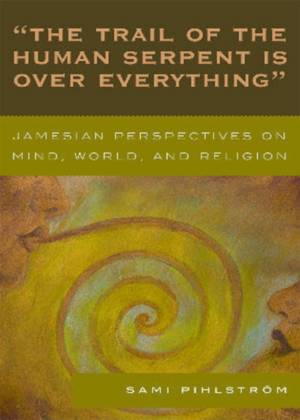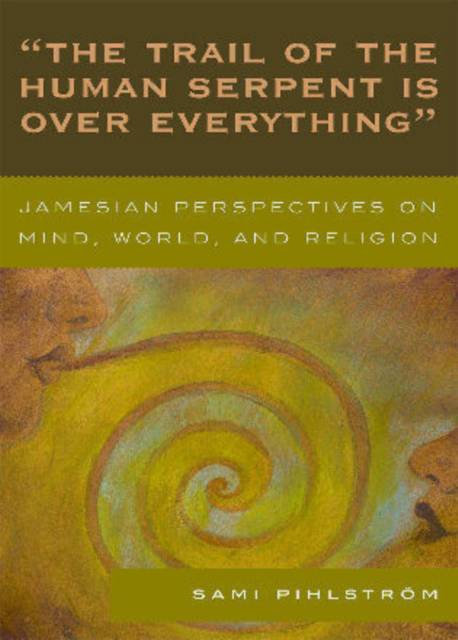
- Afhalen na 1 uur in een winkel met voorraad
- Gratis thuislevering in België vanaf € 30
- Ruim aanbod met 7 miljoen producten
- Afhalen na 1 uur in een winkel met voorraad
- Gratis thuislevering in België vanaf € 30
- Ruim aanbod met 7 miljoen producten
Zoeken
'The Trail of the Human Serpent Is over Everything'
Jamesian Perspectives on Mind, World, and Religion
Sami Pihlström
Paperback | Engels
€ 106,95
+ 213 punten
Omschrijving
This book takes a fresh look at how William James' (1842-1910) conceptions of the human mind, death (mortality and immortality), and religion provide us with a viable alternative to many contemporary philosophical approaches. The distinctive Jamesian perspective is illuminated through critical discussions of several different theories and conjectures. The overall argument of this volume is that pragmatist metaphysics, philosophy of mind, and philosophy of religion must be subordinated to ethics. To provide an historical and philosophical context for this revolutionary conception of the pragmatic method, an introductory discussion of James' views on pragmatism, realism, and truth is also included. Instead of focusing on the general issues of realism and pragmatism, however, the volume examines the applications of these issues to topics such as death, evil, and other minds. The book is vital reading not only for James scholars and pragmatists, but for anyone thinking seriously about human mortality and the endless ethical challenges our life with other human beings that confront us.
Specificaties
Betrokkenen
- Auteur(s):
- Uitgeverij:
Inhoud
- Aantal bladzijden:
- 268
- Taal:
- Engels
Eigenschappen
- Productcode (EAN):
- 9780761839354
- Verschijningsdatum:
- 1/11/2007
- Uitvoering:
- Paperback
- Formaat:
- Trade paperback (VS)
- Afmetingen:
- 154 mm x 226 mm
- Gewicht:
- 390 g

Alleen bij Standaard Boekhandel
+ 213 punten op je klantenkaart van Standaard Boekhandel
Beoordelingen
We publiceren alleen reviews die voldoen aan de voorwaarden voor reviews. Bekijk onze voorwaarden voor reviews.











